
Nurture Your Spirit: 7-Day Faith and Gratitude Guide for Caregivers
Free Resources For Family Caregivers

Are you a caregiver?
Many who help loved ones don't identify as a caregiver. The awareness is important to open the doors for support.
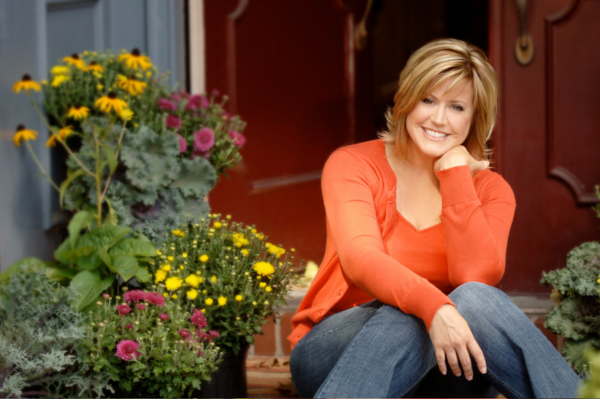
Take Care Tips for Caregivers
Join Jennifer Antkowiak in the Take Care Tips Community Facebook Group designed to help you take care of yourself.

We've got you!
Here's a workbook to guide you through examining how you're doing in 5 main areas of wellness.
Caregiver Support Spotlight: Is it Stress or Burnout?
Caregivers are at increased risk of
stress-related illness, and burnout is very common. Studies show that more than 60% of caregivers experience symptoms of burnout.
Being a family caregiver is a truly selfless role that millions of us step into every day, providing the essential care and support our loved ones need. It's a challenging role. Caregivers are at increased risk for stress and burnout. It's a widespread issue. Studies tell us that 40 million Americans are offering unpaid care to adults, whether it's aging parents, ailing spouses, or family members with physical or mental challenges. What's even more eye-opening is that up to 70% of these caregivers report high levels of stress. Recognizing the difference between stress and burnout is important for safeguarding your own well-being.

Stress vs Burnout
Stress
Feelings of pressure and tension
Often linked to a specific situation or event
Can be a motivator, prompting action
Physical symptoms like headaches, irritability, and sleep disturbances
Emotional responses may include anxiety, frustration, and restlessness
Typically subsides with rest, relaxation, or stress management techniques
Affects the ability to cope with daily challenges but is usually temporary
Burnout
Overwhelming sense of physical and emotional exhaustion
Develops gradually over an extended period
Leads to a sense of disconnection and detachment
Physical symptoms like chronic fatigue, frequent illnesses, and sleep disturbances
Emotional responses often involve cynicism, apathy, and a loss of enjoyment
Persists even with extended rest, impacting overall well-being
Impairs the ability to meet daily responsibilities and is persistent
If you're experiencing symptoms of stress or burnout, don't hesitate to reach out to your doctor.
He or she can provide guidance, support, and resources to help you navigate these challenges and prioritize your health.
You're not alone in this journey, and seeking professional help is a courageous step towards a healthier, happier you.
Caregiver Support Spotlight: The White Feather Story
Spiritual Self-Care
By Jennifer Antkowiak

For the first time since I got that phone call from an emergency room nurse telling me that my mom suffered a massive heart attack and "she was no longer with us", I had time to sit and think about what had happened.
The viewing and funeral were over. I was back home, and it was the night before I had to go back to work. I sat in the living room and the feelings came hard and fast. Shock...sadness...anger. The anger took me by surprise. I am not an angry person; but I was angry...angry at God!
Why did He need my mother more than I did? How could He have taken her three months before my wedding? How did He expect me to go on without her in my life? How did He expect me to be strong enough to be a role model for my three younger sisters? It was too much. I was overwhelmed. I wasn't ready for any of it. I didn't know how I was going to pull it together to return to work. The tears came. Angry tears.
Empowered by the anger, I began to make "demands" from God. God was just going to have to help me - that's all there was to it. "Fine, God," I thought to myself, "you took her, but I need her, so you're going to have to give me a sign that she's still with me in some way. I can't do this. I need a sign. You must give me a sign.".
The television was on across the room. I hadn't been watching it, but I glanced up during my rant, and, I'm not sure if it was a commercial, or a show, but there was a while feather floating slowly across the screen. I didn't give it any thought, but the image registered in my brain.
Cried out for the evening, I dragged myself to bed and tried to sleep. I tossed and turned. Still sad. Still angry. The next morning, I woke up feeling the same way, and stomped around getting ready for work. In a huff, filled with negativity, I stomped out to my car, looked down, and... stuck there in the driver's side door was a big, fluffy, white feather. Everything stopped. A rush of warmth washed over me. I noticed the bright, sunny morning. I smiled; and through tears, felt that God had answered my angry prayer. This was my sign. My mom was still with me. She would always be with me, and so would God.
Many, many times over the years, white feathers pop up in my path when I need a hug. My kids know this story, and at various times, each one of them has come running to me, waving a white feather saying, "she's here"!
I believe that all of us have the power to experience this kind of comfort and love. Don't be afraid to ask for help. Don't be afraid to keep an open mind and look for signs. Cling to your faith during hard times---don't let doubt and fear turn you away. Faith is what can help to fill that hole in your heart.
The caregiving experience can certainly be a true, pure test of faith. When a loved one is sick or hurting, it's easy to question why God would allow it to happen. Many times, caregivers come to a crossroads with their faith as part of their caregiving journey---and think about leaving their faith as they struggle to understand why. Research shows that those who decide to cling to their faith in the midst of crisis receive great benefits. Faith can help because it is centered on ideals and values of compassion, hope, comfort, and peace. Caring for our spiritual health offers opportunities for social interaction with others, through church, volunteer work, attending worship services, observing holidays, and celebrating family milestones like baptisms and weddings.
Research has shown that many caregivers experience feelings of loneliness, which can increase stress, and take a toll on heart health and immunity. Re-connecting with your faith can be a great way to to ease feelings of isolation.
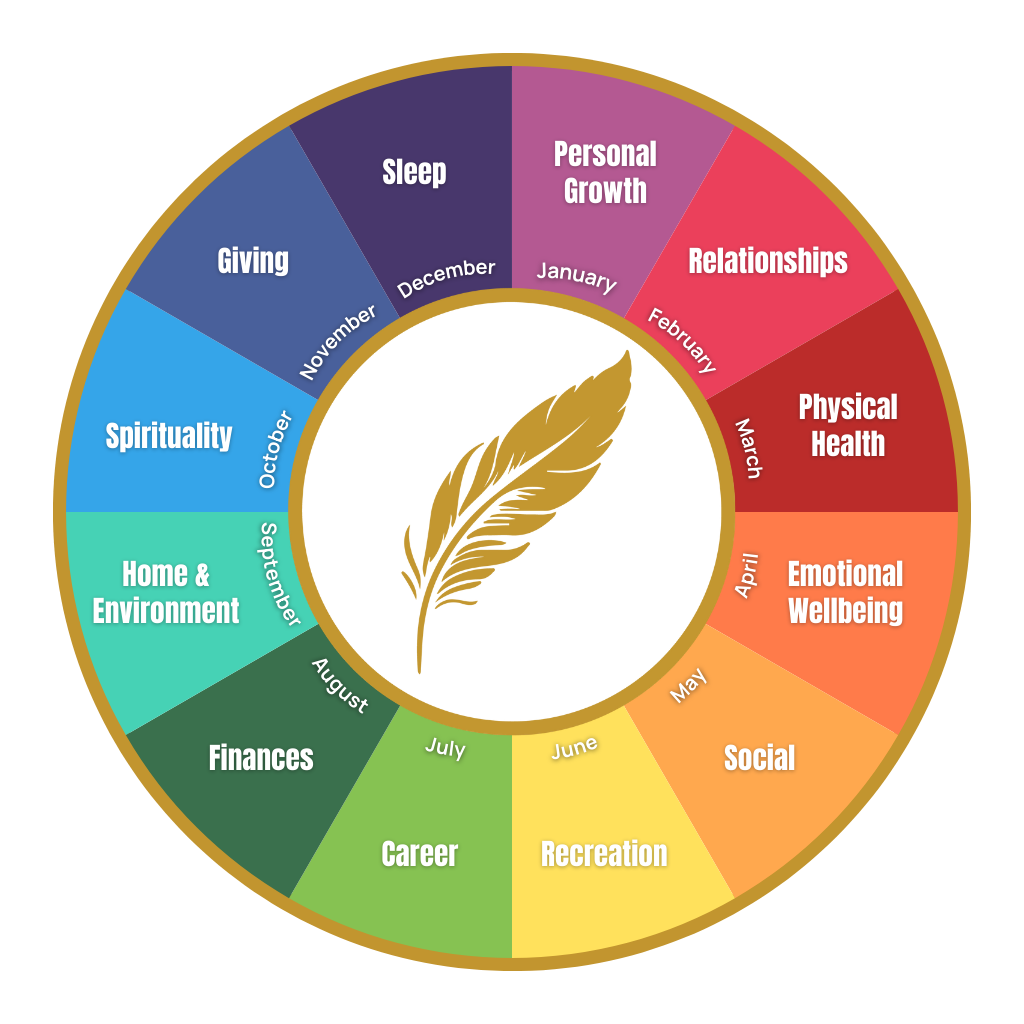
Take Care Tips Wellness Membership
Self-Care just got easier. The Take Care Tips Wellness Membership keeps us connected for ongoing self-care support. You get a new online wellness bundle each month, twice-a-month interactive Zoom meetings with Jen (recordings are available), plus instant access to a private caring community where we keep the conversation going, and the support flowing. Plus, we're offering limited-time discounted pricing right now!
Take 10 with Jen
Take 10 with Jen offers 10-minute wellness breaks to help you overcome one of the most common self-care roadblocks: the feeling that there's never enough time in the day.
Invest at least 10 minutes of your day in self-care, and experience how taking small steps leads to big, positive, healthy results.
How to Make the Most of Take 10 with Jen Wellness Breaks
Pick a break that resonates with you each day, or mix and match them as you see fit. Use them as quick refreshers, moments of calm, or brief escapes to nurture your well-being, especially when you're juggling your caregiving responsibilities. Every small step counts on your self-care journey. We're here to support you!

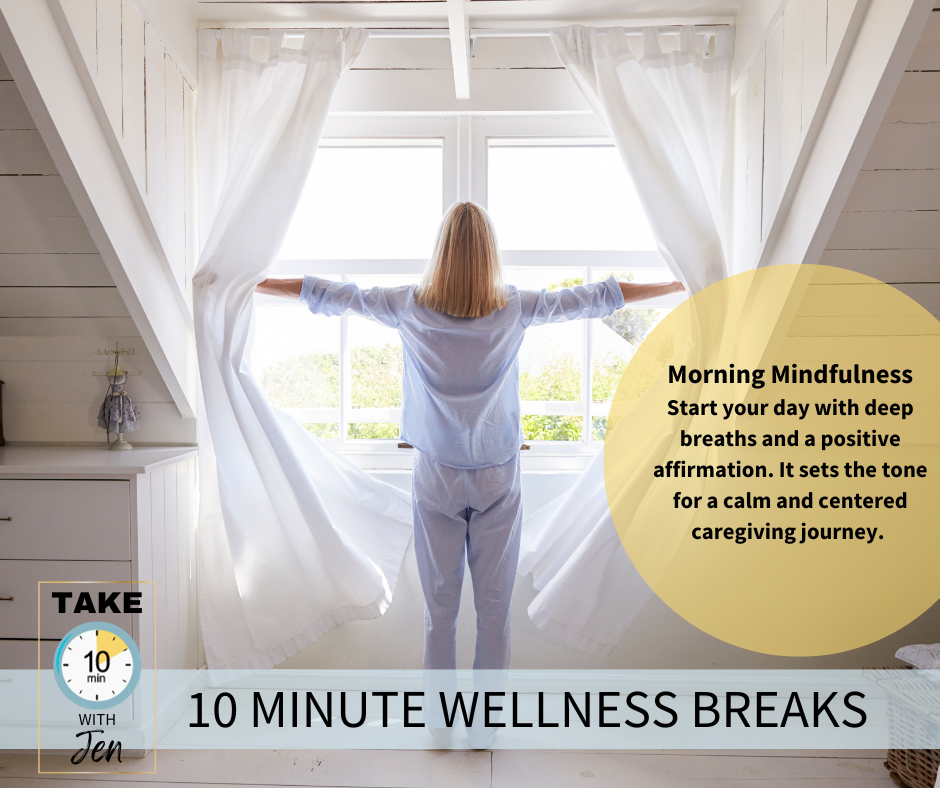
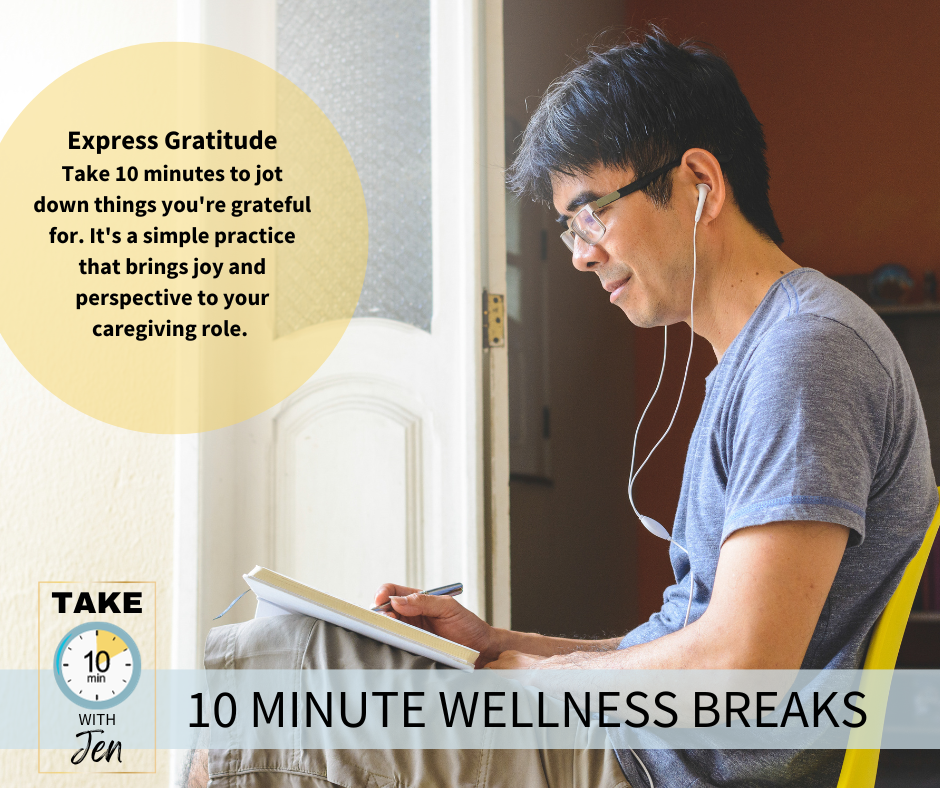
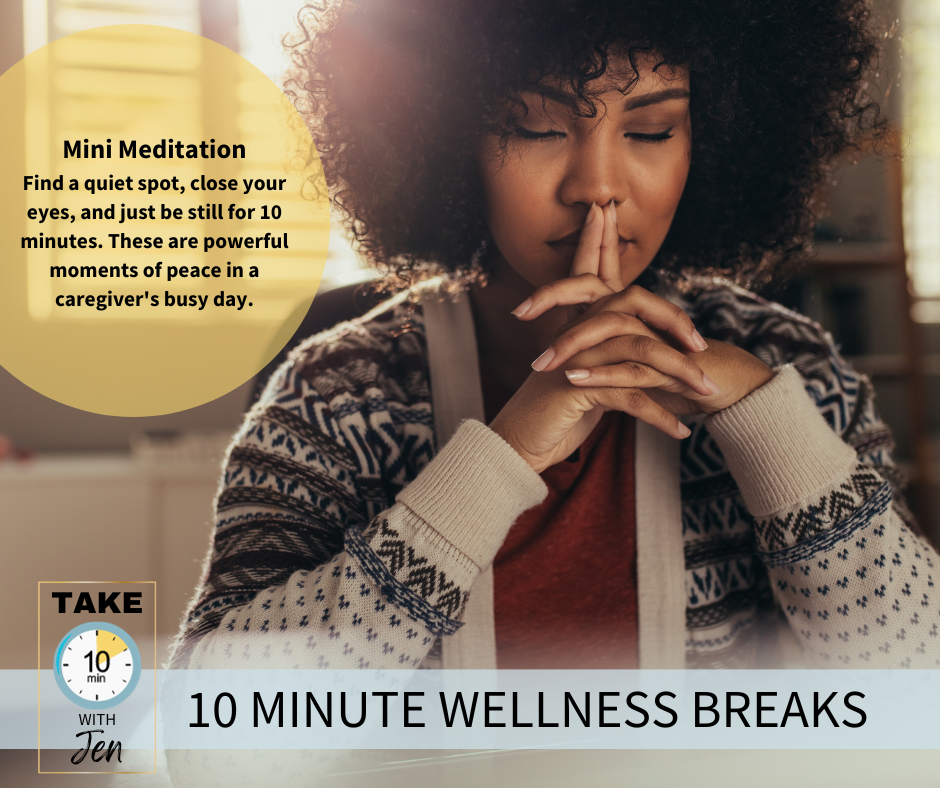
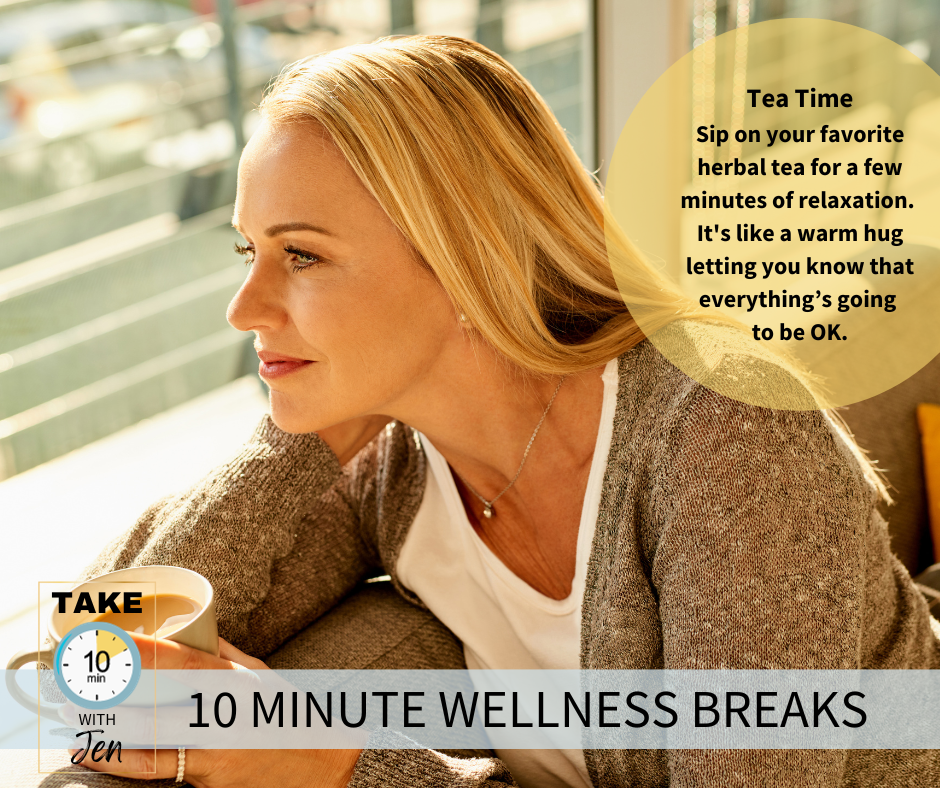
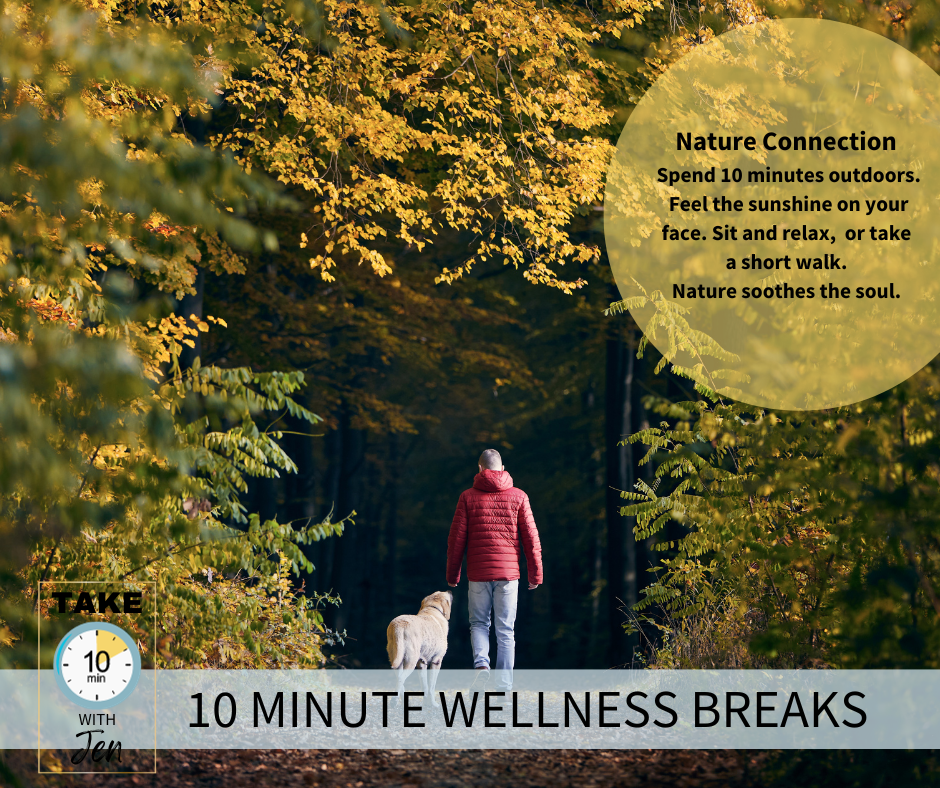

© Copyright 2026 Take Care Tips - Privacy Policy - Terms & Conditions
